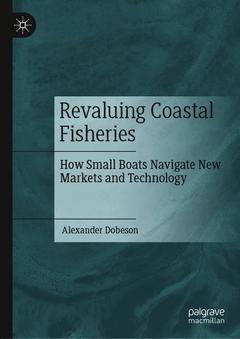Chapter 1: presents the overall theme of the book by introducing Bjartur, an independent coastal
fisherman to the reader. By following Bjartur throughout his career, the reader is introduced to the topics
of market-based resource management and the transformation of the Icelandic fishing industry. The introduction
ends with an overview of the chapters.
Chapter 2: Fishing in Rural Capitalism shows how modern market-based resource management has transformed
rural economies. With regard to the existing literature, the chapter examines the general sociological
insights on markets and neoliberal reform and closes with identifying some explanatory blind spots
with regard to our understanding of markets in rural economies.
Chapter 3: The Transformation of Rural Independence investigates how markets and property rights have
transformed daily economic coping in the coastal fisheries. It reconstructs the metamorphosis of the rural
community-bound coastal fisher to an independent entrepreneur and risk-taking investor.
Chapter 4: The Phenomenology of Fishing takes the reader on a day’s adventure aboard a coastal fishing
vessel and provides first-hand experience of the practice of fishing itself. The chapter introduces the concept
of 'skilful coping' and puts forward a relational understanding of economic practice and technology.
Chapter 5: The Paradox of Science and Technology investigates the role of science and technology in
modern market-based resource management. The movement of fish stocks can be at odds with scientific
stock predictions, pushing fisherman to innovate coping strategies both ashore and at sea, leading to a
never-ending cycle of investments and socio-technical problem solving.
Chapter 6: Harvesting Quality investigates the nature of economic value in the contemporary fisheries.
The chapter investigates the shift towards 'quality' in the small boat fisheries. In the context of increasing
economisation, the chapter points at the changing socio-technical practices that allows fishermen and
producers to collectively revalue their catch towards a high margin niche market.
Chapter 7: Fishing in Scopic Markets shows how digital information technologies, in particular vessel
tracking transponders have given rise for a new 'panoptic' quality valuation regime, in which buyers engage
in remote real-time observations of fishing activities. As a consequence, fisherman discipline their
practice according to their buyer's expectations.
Chapter 8: A New Culture of Liberal Rural Capitalism concludes the book and asks to what extent Bjartur,
the cultural figure of the independent coastal fisher has managed to defend his independence – or if he
is doomed to fail. Accordingly, the major contribution of the book is the diagnosis of a cultural shift from
the community based solidarity of rural capitalism to a more fragmented and individualised market-based
solidarity of liberal rural capitalism. The chapter closes by pointing at the similarity between the fishing
industry and similar transformations in other rural industries such as farming and agriculture and raises
some open questions for future research, thereby broadening the scope of the analysis of the book.
An Appendix will give the unfamiliar reader the chance to get acquainted with the traditional capture
methods used in the Icelandic coastal fisheries, which will play an important role in the struggle for rural
independence.




